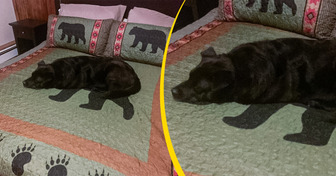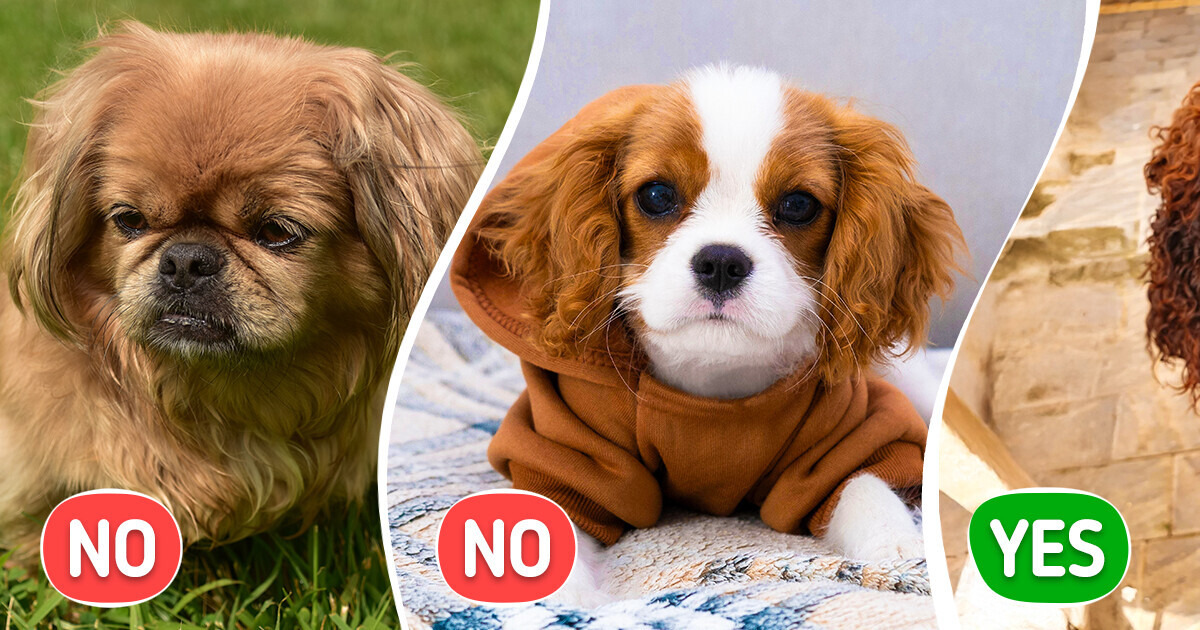19 Pictures That Can Make You Question What You Truly Saw


Three in ten people experience allergic reactions to pets. According to veterinarians, dog hair plays a smaller role in triggering allergies compared to dander and saliva. Breeds that drool excessively can exacerbate allergy symptoms.
Boston Terriers are a well-loved breed, but their tendency to produce excessive mucus can make them unsuitable for individuals with allergies.
For those seeking a terrier with fewer allergy concerns, the Bedlington Terrier is a better choice. With their lamb-like appearance and tight, curly coat, these dogs are known for their minimal shedding, making them a more hypoallergenic option.
Cavalier King Charles Spaniels are undeniably adorable, but their shedding can leave hair on clothes and furniture, which poses a challenge for allergy sufferers. Additionally, their long coats tend to collect dirt and bacteria.
An excellent alternative is the Irish Water Spaniel, another loyal and child-friendly spaniel breed. Thanks to their double-layered coats, hair and dander remain trapped, making them a more suitable option for those with allergies.
The Pekingese breed is prone to heavy shedding, requiring frequent brushing several times a week. This shedding can result in hair around the house, which may trigger allergies.
For those who prefer small, fluffy dogs, the Bichon Frise is a more allergy-friendly option. Known as a non-shedding breed, they are an excellent choice for apartment dwellers looking to minimize allergens.
Basset Hounds are not heavy shedders and don’t leave much hair around the house. However, the dirt and dander that accumulate on their bodies can still trigger allergic reactions.
In contrast, Afghan Hounds are a more hypoallergenic option. They shed minimally and have a pH similar to human hair, making them a better choice for allergy sufferers.
Pomeranians are undeniably adorable, but they produce a specific protein found in their saliva, urine, and dander that can trigger allergies more frequently than other breeds.
For allergy sufferers seeking a small dog, the Maltese is a more suitable choice. With no undercoat, they shed very little and are an excellent option for those living in small apartments.
Schipperkes are not ideal for apartment living and may trigger allergic reactions due to their saliva, which can lead to frequent sneezing for sensitive individuals.
For those seeking a small, active black dog with fewer allergy concerns, the Affenpinscher is a great alternative. This breed has a slow-growing, low-shedding coat, wiry fur that traps dander, and produces minimal drool, making them a more allergy-friendly choice.
Wavy-haired small dogs are undeniably charming, but not all breeds are suitable for allergy sufferers. For instance, the Pumi is not considered hypoallergenic and is not ideal for small apartments. Its coat, made up of 50% soft hair and 50% coarser hair, requires combing every three to six weeks.
A better option would be the Poodle. Known for producing less dander and having minimal odor, Poodles are a more allergy-friendly choice for those seeking a small, curly-coated companion.
Huskies are known for their friendly nature and striking eyes, but they’re not ideal for allergy sufferers. Their heavy shedding often leaves hair, dead skin, and dander throughout the home.
For those seeking a large dog with a Husky-like appearance, the Samoyed could be a better option. While they also shed significantly, experts note that Samoyeds produce less drool, which can help reduce allergy triggers.
Here’s another pair of dog breeds with a similar appearance but different impacts on allergies: Skye Terriers tend to produce more allergens compared to Shih Tzus.
An important factor to consider is that long-haired dogs, like the Shih Tzu, often trap shedding hairs within their coat rather than allowing them to fall to the ground or furniture, which can help reduce sneezing and allergic reactions.
Understanding the differences between breeds—such as shedding levels, dander production, coat types, and drooling tendencies—can help you make an informed choice.
9 Cat Breeds That Will Perfectly Suit Your Lifestyle If You Have an Allergy











